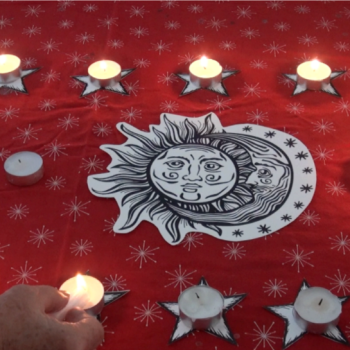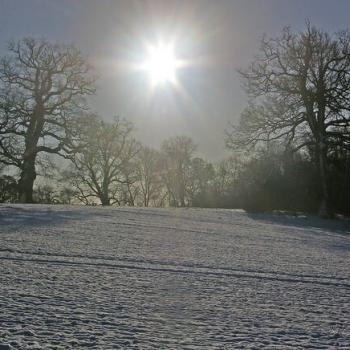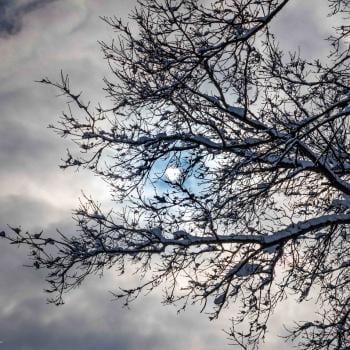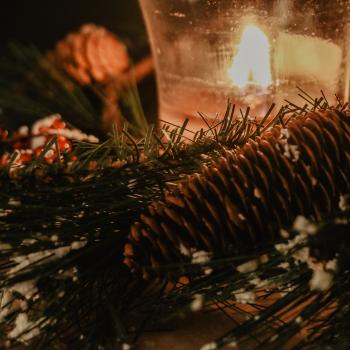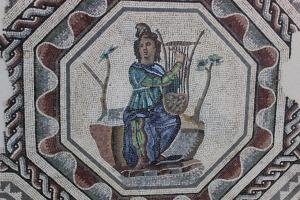 Lately, I’ve been doing a lot of work with the Orphic Hymns, as translated into English by Apolostos N. Athanassakis and Benjamin M. Wolkow. The Orphic Hymns are a collection of over 80 hymns to the various ancient Greek deities, composed sometime between 200 BC and 200 AD by an ecstatic cult whose principle deity was Dionysus.
Lately, I’ve been doing a lot of work with the Orphic Hymns, as translated into English by Apolostos N. Athanassakis and Benjamin M. Wolkow. The Orphic Hymns are a collection of over 80 hymns to the various ancient Greek deities, composed sometime between 200 BC and 200 AD by an ecstatic cult whose principle deity was Dionysus.
The hymns are devotional poems, and one of the things I’m enjoying about them is beauty and richness of the language used to speak to and of these gods. For example, Plouton (also called Hades) is addressed as “All-receiver,” and later in the hymn, the poet says, “You alone were born to judge deeds obscure and conspicuous.” I also love the part of the hymn to Athene, where she is said to be “spoken of and then ineffable.” The hymns are full of these beautiful turns of phrase that evoke the nature of the deities they address.
Ambiguous Gods
I also love how the hymns face head on the ambiguous nature of the Greek divinities. Athene is also called “horrid tempered one.” Ares is also referred to as “O horrid one.” Death is said to be “unjust to some.” These hymns present the Greek deities, as Greek mythology in general does, as sometimes beneficent and sometimes harmful, even capricious. Several are said to both sustain and destroy life, such as Persephone: “You nourish all always, and kill them too.” These deities are complex, multi-faceted, and not always easy to love or worship.
For some people, this makes the Greek pantheon unworthy of worship. How can we venerate gods that are this amoral? What is there worthy of devotion here? That’s a perfectly valid perspective, but it’s not mine. I love that these deities are presented in all this troubling complexity. Given the troubling complexity of life itself, it seems appropriate that the ones who created and sustain it are also troubling and complex.
The relationship between the gods and the natural world
This collection of poems in particular continually underlines the relationship between the gods and the natural world. The hymn to Hera, for example, says, “You toss and turn when the rushing wind tosses and turns.” Nature is not always beneficent, as we know. Characterized by great beauty and harmony, it is also home to brutality and senseless suffering, and, of course, mortality itself. Nature and its deities are awe-inspiring, in that sense of something immensely bigger than me, which can sustain or destroy me, and which is following purposes bigger than I can possibly see from my smaller vantage point.
Reading the hymns also reminds me of the reasons I find polytheism compelling at this point in my spiritual journey. That complexity of the cosmos in which I find myself may indeed participate in some greater unity beyond my comprehension. But in actual lived experience and practice, I find it much more natural to connect with a multitude of divine figures representing the diversity, multiplicity, and complexity of the world around me – and even at times of my own being. The hymns allow this kind of multiplicity, by addressing not just a multitude of separate deities, but also by addressing some of them, and in particular Dionysus, through many hymns to their different manifestations and attributes.
All of this is to say that if you’re looking for some devotional poetry to add to or inspire your own devotions, or if you want a deeper dive into the Greek pantheon as experienced by one worshipping community, or if you’re just looking for some beautiful poetry, I highly recommend this particular translation of the Orphic Hymns. Here are the publication details, if you want to find it: The Orphic Hymns, translation, introduction, and notes by Apolostos N. Athanassakis and Benjamin M. Wolkow, Johns Hopkins University Press, Baltimore, 2013.





